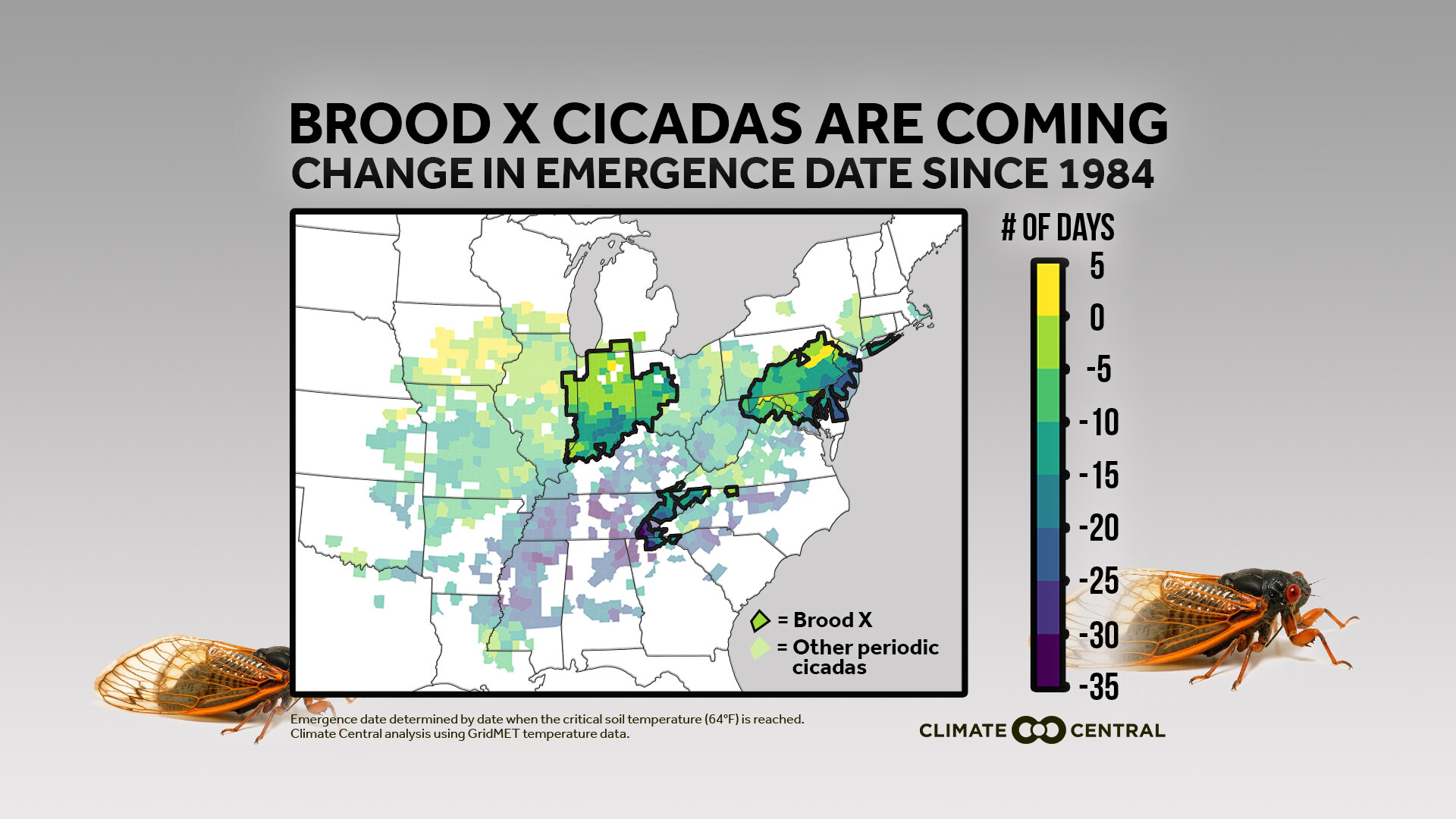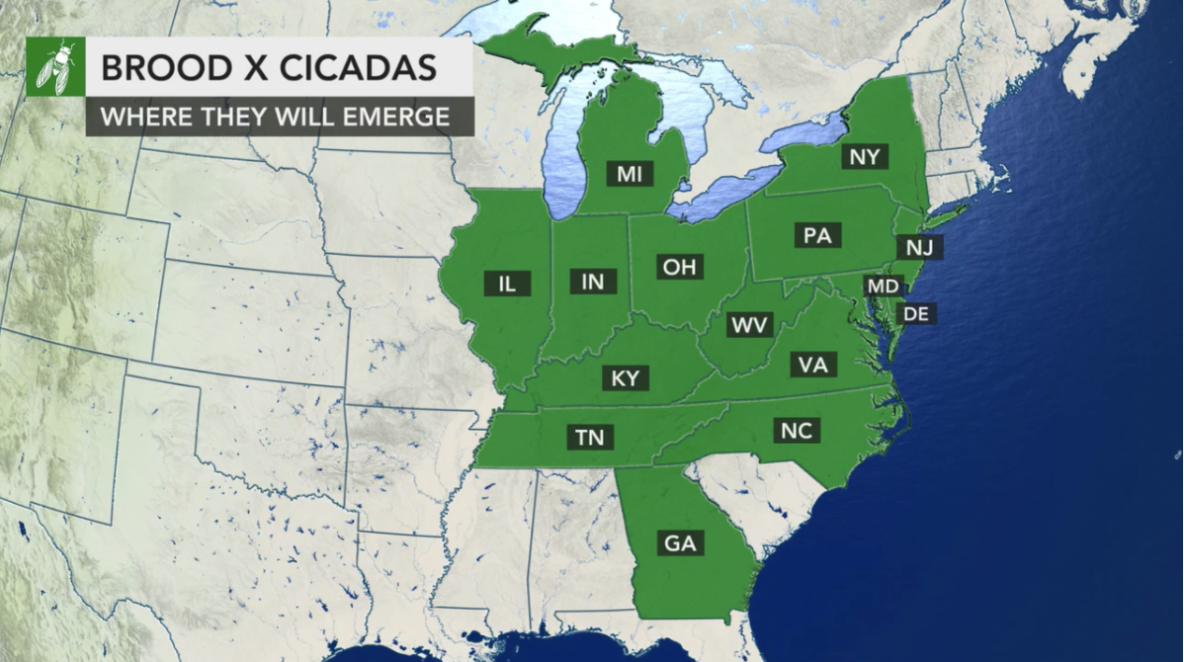
As the warmer months approach, the anticipation for the 2024 cicada emergence is building. For those fascinated by these periodic insects, this year promises to be an exciting one, with two significant broods, XIII and XIX, expected to emerge. In this article, we will delve into the world of cicadas, exploring their life cycle, the areas where Brood XIII and XIX are expected to emerge, and how you can track their appearances.
Understanding Cicadas and Their Life Cycle
Cicadas are known for their unique life cycle, which involves a prolonged underground phase followed by a brief, spectacular emergence. These insects spend years, sometimes decades, underground as nymphs, feeding on root sap before they mature and surface. The emergence of cicadas is typically marked by the males' loud mating calls, which can reach deafening levels, and the sight of their shed exoskeletons clinging to trees and other surfaces.
Brood XIII and XIX: What to Expect
-
Brood XIII: Known as the "Northern Brood," this group is expected to emerge in parts of the Midwest. Their 17-year life cycle means that areas that saw an emergence in 2007 will likely experience another this year. States such as Illinois, Indiana, Iowa, and parts of Wisconsin and Michigan are on the map for Brood XIII sightings.
-
Brood XIX: This brood, also known as the "Great Southern Brood," has a 13-year cycle and is anticipated to emerge across a broader area, including parts of the southern United States. Areas that can expect to see Brood XIX include parts of Alabama, Arkansas, Georgia, Illinois, Indiana, Kentucky, Maryland, Mississippi, Missouri, North Carolina, Ohio, Oklahoma, South Carolina, Tennessee, and Virginia.
Tracking the Emergence
For cicada enthusiasts, tracking the emergence is a significant part of the fun. Several websites and apps offer real-time mapping of cicada sightings, allowing individuals to report their own encounters and view where others have spotted these insects. Social media platforms also play a crucial role, with hashtags dedicated to cicada sightings and discussions about the best viewing spots and times.
Where to Find Them
Both Brood XIII and XIX are expected to emerge in wooded areas, where their host trees are abundant. The timing of the emergence is typically in late spring, when soil temperatures reach around 64°F (18°C), signaling to the nymphs that it's time to surface. Some of the best places to witness this natural phenomenon include national parks, forests, and even backyard trees in the affected regions.
The 2024 cicada emergence promises to be a spectacular event, with Brood XIII and XIX offering a unique opportunity for nature lovers and scientists alike to observe these fascinating creatures. Whether you're a seasoned cicada enthusiast or just curious about these periodic insects, this year's emergence is an event not to be missed. By staying updated with the latest maps and reports, you can plan your cicada sighting adventure and be a part of this natural wonder.
For the most current information and to contribute your own cicada sightings, visit dedicated cicada tracking websites and join the conversation on social media using relevant hashtags. The emergence of Brood XIII and XIX is a reminder of the awe-inspiring cycles of nature and the importance of these insects in our ecosystem. So, mark your calendars, grab your binoculars, and get ready to witness one of nature's most incredible displays.








